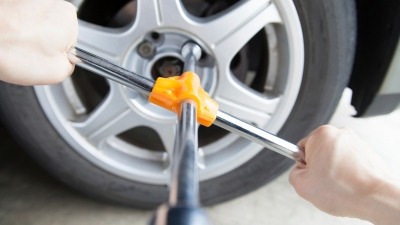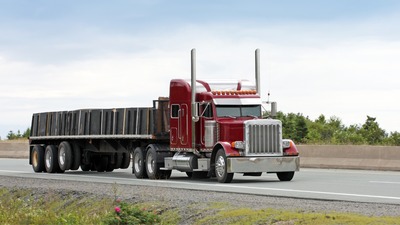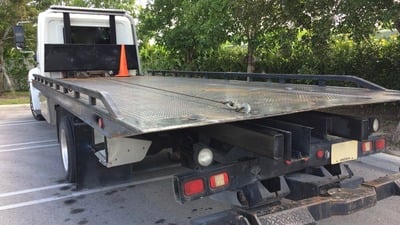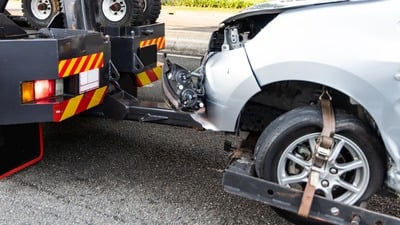Introduction to Towing Efficiency
To kick things off, let's dive straight into why towing efficiency is something you can't afford to ignore. Simply put, it's all about making sure you can tow whatever you need—be it a trailer, boat, or another vehicle—without wasting time or energy. Think of it this way: the right equipment turns an uphill battle into a smooth ride. And at the heart of this equipment? The lug wrench. This tool might not seem like the hero of the story, but trust me, it's key. A reliable lug wrench ensures you can quickly and securely tighten or loosen the lug nuts on your wheels. Whether you're prepping for a tow or dealing with a flat tire on the road, this tool keeps you moving. Without it, you're stuck. So, if you're looking to keep your towing process efficient and hassle-free, understanding the value of a sturdy lug wrench is step one.
What Are Lug Wrenches and Why They Matter
Lug wrenches are the tools you use to loosen or tighten the lug nuts on your vehicle's wheels. These nuts keep your wheels securely attached to your car, so having a wrench that can handle this job well is crucial. Think of lug wrenches as the unsung heroes in your car's toolbox. Without a reliable one, you might find yourself stuck on the side of the road, unable to change a flat tire. They come in various sizes to fit different vehicles and lug nut dimensions. A solid lug wrench gives you the leverage necessary to deal with even the most stubborn lug nuts, ensuring your wheels stay where they should be, on your vehicle, and can be removed or attached with ease when needed. In short, a good lug wrench is key to maintaining your vehicle's safety and your peace of mind while out on the road.
The Role of Lug Wrenches in Towing Safety
Lug wrenches are not just tools; they are your towing safety net. When you're on the road hauling something behind your car or truck, every piece of equipment needs to be in top shape. This includes the lug wrench. It's the tool that tightens and loosens the lug nuts on your vehicle's wheels. If these nuts aren't tight enough, or if they're unevenly tightened, it could spell disaster. Loose or uneven lug nuts can cause the wheel to wobble or, in the worst-case scenario, come off while driving. Imagine that happening at high speeds or in heavy traffic. Not pretty, right? That's where the lug wrench comes in. Its job is to make sure every lug nut is tightened to the vehicle manufacturer's specified torque, ensuring a secure and stable connection between your vehicle and its wheels. This is critical for towing because the added weight and strain on your vehicle can amplify any issues with wheel security. Remember, when it comes to towing, the right tools can make all the difference. Your lug wrench plays a key role in keeping you, your vehicle, and whatever you're hauling safe on the road.
Different Types of Lug Wrenches for Various Needs
Lug wrenches are your best friend when it’s time to change a tire, but not all wrenches are created equal. There are mainly four types you should know about. The most common is the Four-Way lug wrench. It’s shaped like a cross, offers various socket sizes on each arm, and gives more leverage, making tire changes easier. Then there’s the L-Shaped wrench, sometimes called a lug key, focusing on simplicity but requiring more muscle. Socket wrenches are more modern, often used with a power tool to speed up the process, ideal for those who value efficiency. Lastly, Torque wrenches stand out by ensuring your lug nuts are tightened just right, preventing damage from over-tightening. Each type suits different needs, whether you're after convenience, speed, or precision. Choose wisely to make your next tire change smoother.
How to Choose the Right Lug Wrench for Your Vehicle
Choosing the right lug wrench for your vehicle is crucial for maximizing towing efficiency. Start by checking your vehicle's manual for the specific size and type of lug nuts it uses. Different vehicles require different wrench sizes, so this step is key. Go for a lug wrench that fits snugly on your vehicle's lug nuts; a poor fit can damage the nuts or make them harder to turn. Consider a wrench with a longer handle. More length means more leverage, making it easier to loosen and tighten lug nuts without straining yourself. A four-way lug wrench, also known as a cross wrench, offers versatility with different sized sockets on each end, fitting most vehicles and providing options for various situations. Durability matters. Choose a wrench made from high-quality, tough materials like hardened steel; it might cost a bit more upfront, but it pays off in longevity and reliability. Lastly, think about the wrench's design. Some feature telescoping handles for compact storage and extended leverage. After all, efficient towing isn't just about raw strength—it's about smart, practical choices tailored to your specific needs.
Tips for Maximizing Towing Efficiency with Reliable Lug Wrenches
To maximize your towing efficiency, having a reliable lug wrench is key. This isn’t just about having any lug wrench but the right one that makes changing tires fast and easy, especially when you’re on the road. Here’s how to ensure your lug wrench won’t let you down. First, invest in a quality lug wrench. A durable, strong wrench can handle the torque you need without bending or breaking. Look for one made of chrome-molybdenum or chrome-vanadium steel. These materials are tough and long-lasting. The right size matters. Ensure the lug wrench fits your vehicle’s lug nuts perfectly. A poor fit can damage the nuts or make them harder to turn. Opt for a four-way lug wrench. Its cross shape gives you more leverage, making it easier to loosen and tighten lug nuts. Plus, the four different sizes ensure you have the right fit for various vehicles. Finally, practice makes perfect. Familiarize yourself with your lug wrench before you need it. Knowing how to use it efficiently can save you time and frustration during a tow. With the right lug wrench and a bit of know-how, you’ll boost your towing efficiency significantly.
Essential Maintenance Tips for Lug Wrenches
Keep your lug wrenches in top shape with these straightforward maintenance tips, and you won't get stranded with a wheel that won't budge. First off, after every use, wipe your lug wrench clean. Grime and dirt can cause your wrench to slip or fail when you need it most. Next, give it a quick check for rust. If you spot any, lightly sand it away and apply a thin coat of oil to prevent future corrosion. Store your lug wrench in a dry place. Moisture is the enemy here, leading to rust and deterioration. Periodically, inspect your wrench for any signs of wear or damage. If the wrench head is cracked or the lever bent, it's time for a replacement. Remember, a well-maintained lug wrench ensures you can always rely on it during roadside emergencies. Keep it simple, care for your tools, and they'll look after you when it counts.
How to Properly Use a Lug Wrench for Towing
When it comes to towing, having a firm grip on how to use a lug wrench is key. This tool is not just about strength; it’s about smart handling. First off, ensure your car is safely parked and the handbrake is up. Then, take your lug wrench and fit it snugly onto one of the lug nuts. Push down on the wrench in a counterclockwise direction. Use steady pressure, no need to jerk or bounce on the tool. If it’s being stubborn, a solid, steady push usually does the trick. Once loosened, move in a star pattern across the lug nuts, not clockwise. This method prevents uneven pressure on the wheel. After towing, when tightening, reverse the process. Start hand-tightening in the same star pattern, then use the lug wrench to secure them by pushing clockwise until firmly tight. Don’t overdo it; too tight can warp your brake rotors. This approach ensures your wheel is evenly and securely attached, making your towing trip smoother and safer. Keep it simple and effective; that’s the lug wrench way.
Common Mistakes to Avoid with Lug Wrenches
When it comes to making sure your towing experience doesn't turn into a roadside headache, avoiding common mistakes with lug wrenches is crucial. First off, don't ignore the need for a right-sized wrench. Using one that's too big or small can strip the lug nuts, making them impossible to remove or tighten properly. Another mistake is applying too much force all at once. Yes, those nuts need to be tight, but overdoing it can warp your wheel or snap the lug nut, which is a pain to deal with. Also, skipping regular checks for rust and corrosion on your lug wrench and nuts is asking for trouble. Corroded tools or nuts can break unexpectedly. Lastly, using a wrench that's not suited for your vehicle's specific needs just because it was handy is not the way to go. Different vehicles may require different torque specs or wrench sizes. Paying attention to these common missteps can save you from the frustration of being stuck on the side of the road, trying to deal with a lug wrench problem when you should be on your way.
Conclusion: The Importance of Investing in Quality Lug Wrenches
To wrap things up, never skimp on your lug wrenches. They are not glamorous, but man, do they matter. Think of them like the foundation of a house. You wouldn’t want your home resting on shaky ground, right? Same goes for your towing setup. A solid lug wrench ensures you can safely and effectively change a tire whenever needed, reducing downtime and stress on the road. Quality matters because when the moment comes to use one, you need it to work without a hitch. This isn't about spending more for the sake of it, but investing in tools that won't let you down. Remember, every component of your towing rig, no matter how small, plays a crucial role in its efficiency and safety. So, choose wisely and treat your towing gear with the respect it deserves. Trust us, it pays off in the long run.





